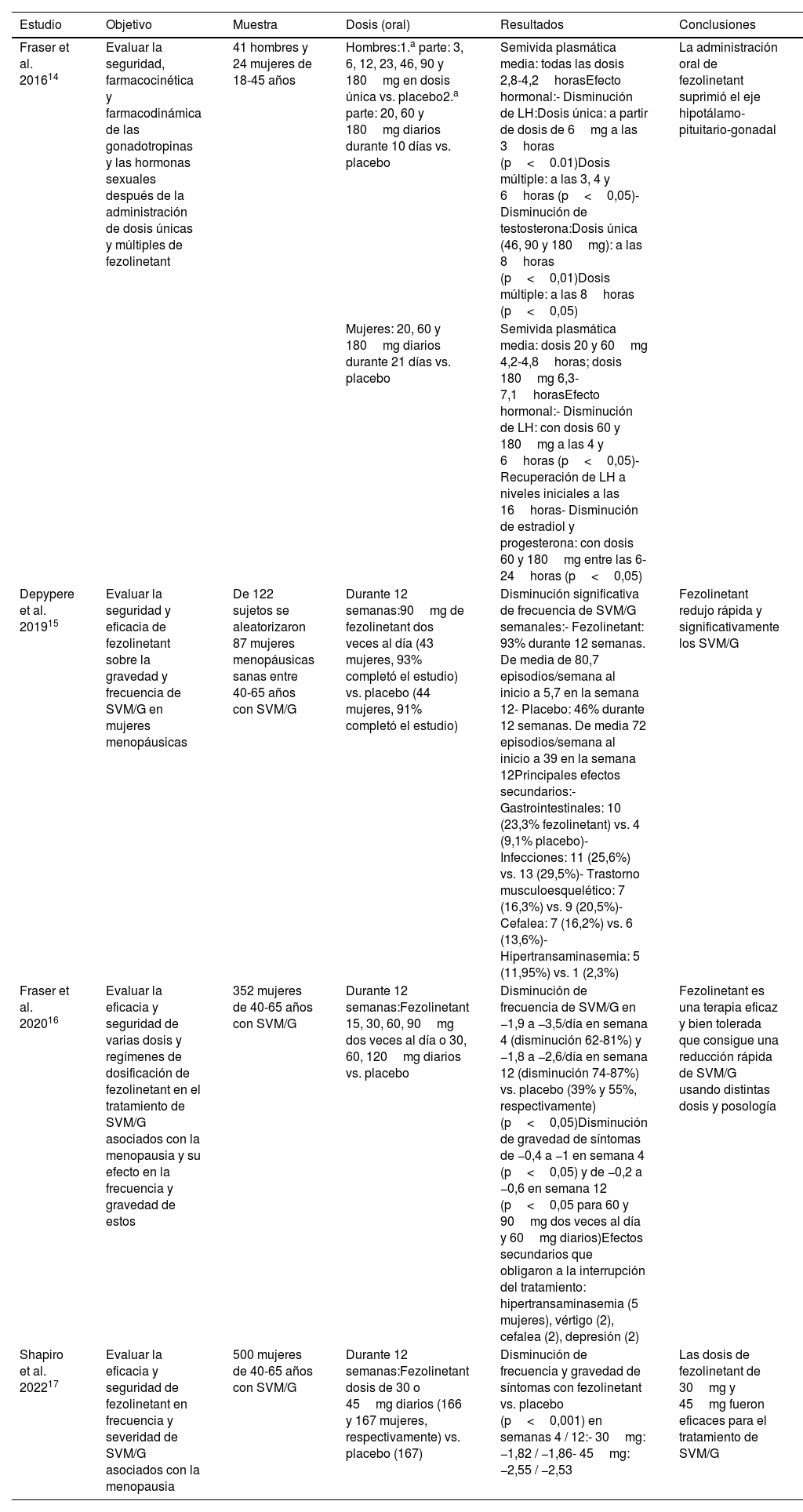La menopausia es el cese fisiológico de la menstruación que puede presentarse en las mujeres entre los 42 y 58 años con una sintomatología diversa. La clínica más frecuente es la vasomotora, que puede afectar en gran medida a la calidad de vida de las mujeres. Tradicionalmente se ha usado la terapia hormonal sustitutiva, que se considera el tratamiento más efectivo. Sin embargo, existe una serie de contraindicaciones por las que se debe plantear el uso de una terapia no hormonal. Actualmente estas opciones son subóptimas en efectividad y tolerancia, por lo que se está investigando acerca de nuevos tratamientos como el fezolinetant, un antagonista del receptor de neuroquinina 3. Para dilucidar dichas investigaciones se ha realizado una búsqueda bibliográfica en las principales bases de datos. Aunque aún queda por establecer su seguridad y efectos a largo plazo, la terapia con fezolinetant parece ser prometedora en pacientes en las que no se puede usar terapia hormonal. Disminuye la sintomatología vasomotora moderada o grave desde el primer día de tratamiento de manera estadísticamente significativa al compararla con placebo y con otros tratamientos no hormonales, con un buen perfil de tolerancia y escasos efectos secundarios. Sin embargo, este medicamento aún se encuentra en ensayos de fase III, por lo que se necesita continuar con su estudio.
Menopause is the physiological cessation of menstruation that can occur in women between 42 and 58 years of age with diverse symptoms. The most common clinic is vasomotor, which can greatly affect the quality of life of women. Traditionally, hormone replacement therapy has been used and is considered the most effective treatment. However, there are contraindications for which the use of non-hormonal therapy should be considered. Nowadays, these options are suboptimal in terms of effectiveness and tolerance, which is why research is being carried out on new treatments such as fezolinetant, a neurokinin 3 receptor antagonist.
To elucidate these investigations a bibliographic search has been carried out in the main databases. Although its safety and long-term effects remain to be established, fezolinetant looks promising in patients for whom hormonal therapy cannot be used. It decreases statistically significant the moderate or severe vasomotor symptoms from the first day of treatment when compared with placebo and with other non-hormonal treatments with a good tolerance profile and few side effects. However, this drug is still in phase III trials, so it needs to continue with its study.








